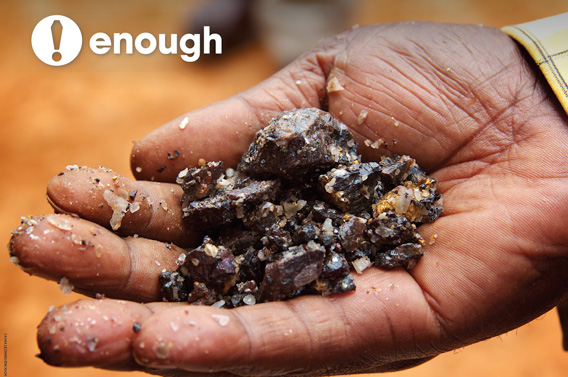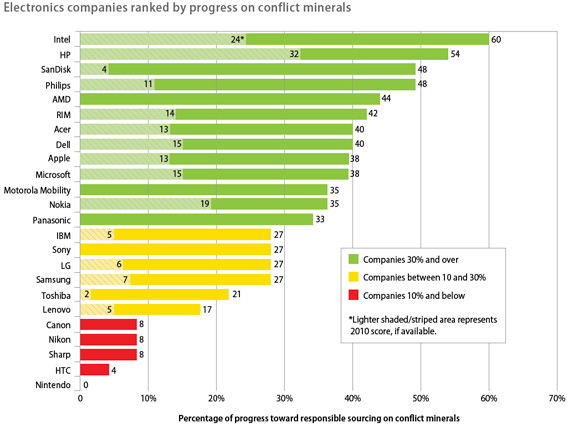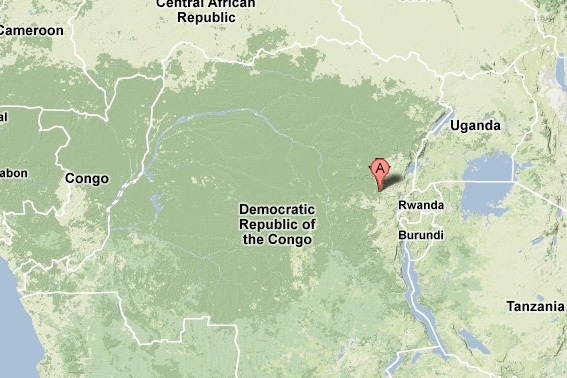
Conflict minerals in DRC. Courtesy of the Enough Project
Gaming giant Nintendo is the worst company for ensuring that materials used in its electronics are not linked to bloodshed in war-torn regions like the Democratic Republic of the Congo (DRC), according to an assessment released today by the Enough Project, an initiative that aims to boost transparency around minerals sourcing.
Nintendo received a score of zero on the group’s ranking system, meaning it is doing nothing to ensure that its electronics are not linked to resource conflict.
“Nintendo is, I believe, the only company that has basically refused to acknowledge the issue or demonstrate they are making any sort of effort on it,” Sasha Lezhnev, co-author of the report and senior policy analyst at the Enough Project, told CNN. “And this is despite a good two years of trying to get in contact with them.”
Canon, Nikon, Sharp and HTC also scored low on the rankings. Intel, HP, Motorola Solutions, AMD, RIM, Phillips, Apple, and Microsoft scored well.
“HP and Intel have gone above and beyond the call of duty on conflict minerals,” said Lezhnev in a press release.

Electronics companies ranked by progress on conflict minerals. Courtesy of the Enough Project
The report was released ahead of a vote by the Securities and Exchange Commission (SEC) on rules for the conflict minerals law. The law targets countries like DRC where conflict over minerals like tin, tantalum, tungsten, and gold have played a critical role in fueling a long-running war that has claimed 5.4 million lives. Armed groups fund operations through minerals trafficking.
“The SEC should ensure that retailers and all firms that use the minerals are covered by the rules and that there is not a long phase-in period,” said Lezhnev. “Otherwise, the Intels and HPs will be left unfairly holding the bag for a problem that belongs to thousands of companies that have been turning a blind eye to this problem for years.”
The report finds that consumer electronics companies are generally making progress on tracing the origin of the materials they use. Progress has been slow in sectors, notably jewelry, automative, and industrial machinery, according to the report.

Walikale, a key hub for DRC’s minerals trade. Courtesy of Google Maps.
Taking Conflict Out of Consumer Gadgets | Company Rankings on Conflict Minerals 2012 Sasha Lezhnev and Alexandra Hellmuth (August 2012)
Related articles







